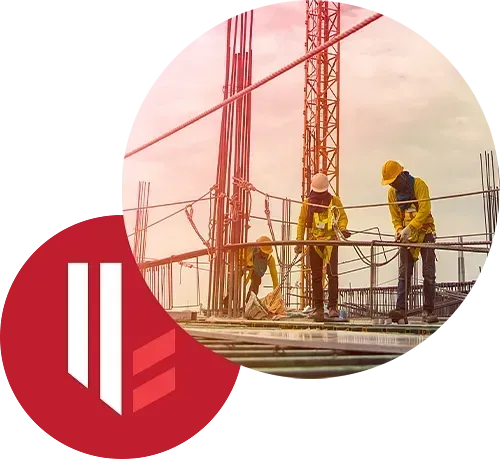Common Commercial Insurance Policies
Index
Contact Us
Phone
Location
Denver
5990 Greenwood Plaza Blvd, Ste 270
Greenwood Village, CO 80111
Des Moines
130 E 3rd St. Ste 201
Des Moines, IA 50309
Types of COntractor Insurance
In the roofing industry,
insurance is a critical component of business operations. It provides a safety net for unforeseen circumstances that could potentially cripple your business. This is particularly true in Colorado, where weather conditions can be unpredictable, and the
risk of damage to property is high. In this guide, we will delve into the intricacies of roofer's insurance in Colorado, exploring its importance, types, and how to acquire it.
Why is Insurance Important for Roofers in Colorado?
Operating a roofing business in Colorado presents unique challenges. The state's diverse weather patterns, ranging from heavy snowfall to hail storms, increase the risk of accidents and property damage. Without adequate insurance, roofers could face hefty out-of-pocket expenses for damages or lawsuits. Insurance provides financial protection, ensuring that your business can weather any storm.
Moreover, having insurance enhances your business's credibility. Clients are more likely to trust and hire a roofing contractor who is insured, as it gives them assurance that they won't be held liable for any damages or accidents that occur during the project. In essence, insurance is not just a protective measure but also a powerful marketing tool for your business.
Types of Insurance for Roofers in Colorado
There are several types of insurance that roofers in Colorado should consider. Each offers different coverage, and the best choice depends on your specific business needs and risks.
General Liability Insurance
General Liability Insurance is a must-have for any business, including roofing contractors. It covers third-party claims for bodily injury, property damage, and advertising injury. For instance, if a roofer accidentally damages a client's property while working, the General Liability Insurance would cover the repair costs.
It's important to note that while General Liability Insurance is comprehensive, it doesn't cover everything. For example, it won't cover damages to your own business property or injuries to your employees. For these, you'll need other types of insurance.
Workers' Compensation Insurance
Roofing is a high-risk job. Accidents can happen, and when they do, Workers' Compensation Insurance comes into play. This type of insurance covers medical expenses and lost wages for employees who get injured or sick because of their work. In Colorado, it's mandatory for businesses with one or more employees to have Workers' Compensation Insurance.
Having this insurance not only ensures that you comply with the law, but it also protects your business from potential lawsuits. An injured employee who receives workers' compensation benefits cannot sue the employer for the injury.
Commercial Auto Insurance
If your roofing business uses vehicles for operations, such as transporting materials and workers, you'll need Commercial Auto Insurance. This insurance covers bodily injury and property damage that may result from a vehicle accident involving your business.
Remember, a personal auto insurance policy won't cover vehicles used for business purposes. Therefore, it's crucial to have Commercial Auto Insurance to protect your business from significant financial loss.
How to Get Insurance for Roofers in Colorado
Acquiring insurance for your roofing business in Colorado involves several steps. It's not just about purchasing a policy; it's about getting the right coverage for your business needs.
Assess Your Business Risks
The first step is to assess your business risks. What are the potential hazards in your operations? What kind of accidents could occur, and what would be their impact? Understanding your risks will help you determine the type and amount of coverage you need.
For instance, if your roofing business involves working on high-rise buildings, you may face higher risks of severe accidents. In this case, you might need a higher limit on your Workers' Compensation Insurance.
Compare Insurance Providers
Once you've identified your needs, the next step is to compare insurance providers. Look for insurance companies that specialize in business insurance, particularly in the roofing industry. They will have a better understanding of your needs and can provide tailored solutions.
When comparing providers, consider factors like coverage options, premiums, deductibility, customer service, and claim process. Remember, the cheapest policy isn't always the best. You want a provider that offers comprehensive coverage at a reasonable price.
Purchase Your Policy
After selecting a provider, the final step is to purchase your policy. The provider will guide you through the process, which usually involves filling out an application form and providing necessary documents. Once your application is approved, you'll need to pay the premium to activate your coverage.
Keep in mind that insurance is not a one-time deal. You should regularly review and update your coverage as your business grows and risks change. This will ensure that your business remains protected at all times.
Conclusion
Insurance is a crucial part of running a successful roofing business in Colorado. It provides financial protection against potential risks and enhances your business's credibility. Whether it's General Liability Insurance, Workers' Compensation Insurance, or Commercial Auto Insurance, each type plays a vital role in safeguarding your business.
Getting the right insurance involves assessing your business risks, comparing insurance providers, and purchasing a policy that meets your needs. With the right insurance in place, you can focus on what you do best - providing quality roofing services to your clients.


